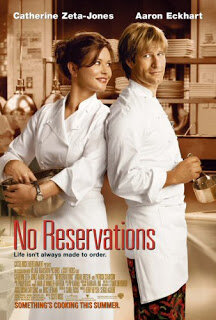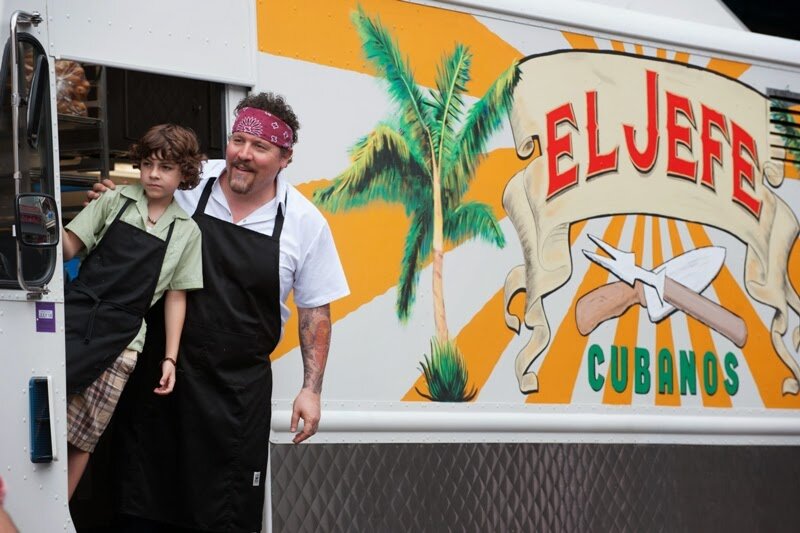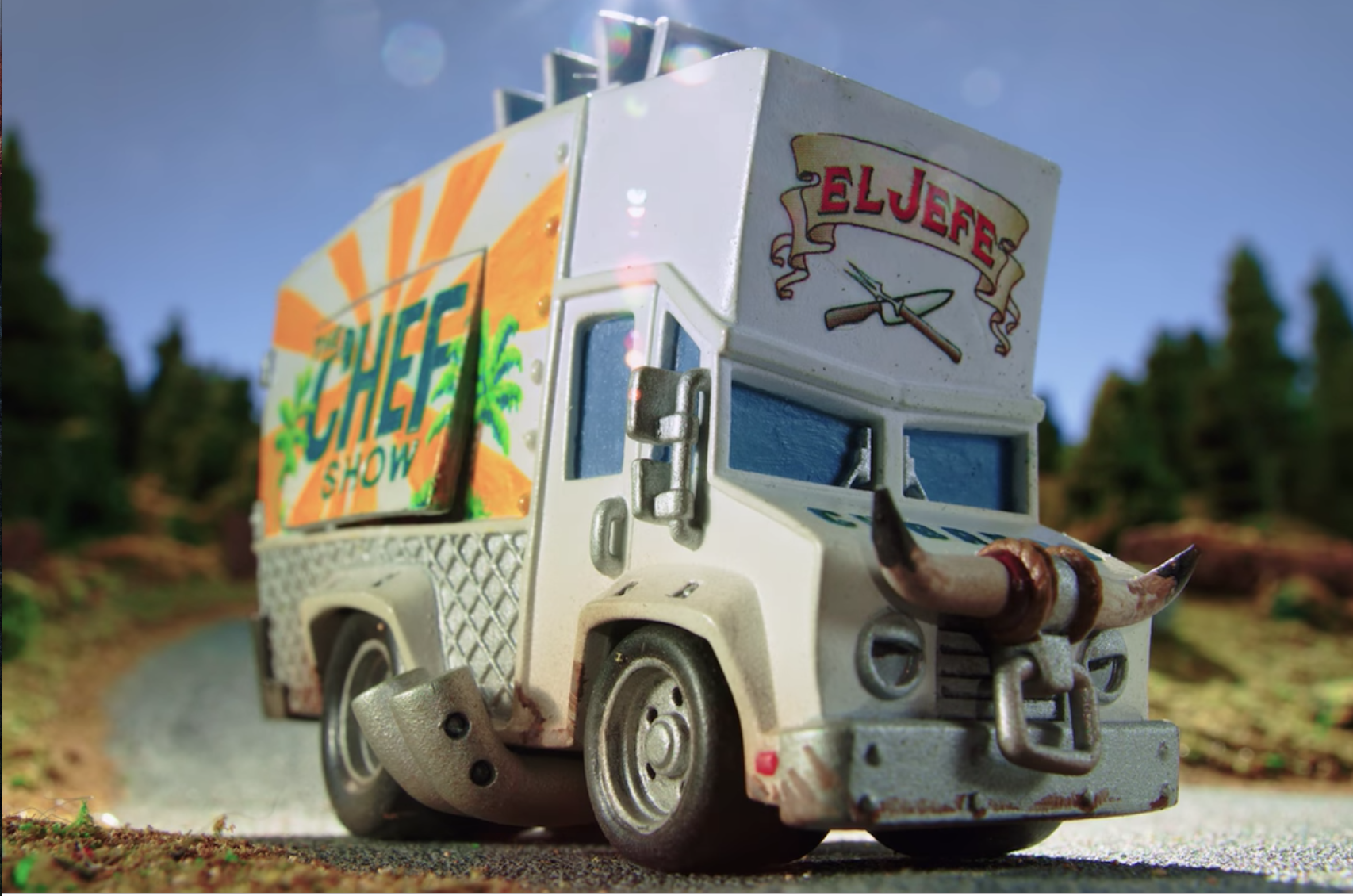Before Breakfast, Lunch, and Dinner, Consider The Chef Show
Food television is a magical and extensive genre. There are shows like Parts Unknown and Bizarre Foods that take us across borders and state lines to reveal food’s relevance in culture, race, and politics. In The Great British Bake Off or Beat Bobby Flay, we are captivated by the excitement of competition and the chance for an underdog to be crowned a culinary champion. Finally, food documentaries such as Fed Up tell viewers a story about the deficiencies of our food system, while films like No Reservations throw a once inconsequential shroud of romance over the truth of restaurant kitchens and the lives of chefs. Today, industry folks like David Chang have criticized certain food films for their ignorance and glamorizing of the restaurant industry. Maybe that kerfuffle is exactly what triggered this rush of food documentary series like Street Food and Salt, Fat, Acid, Heat. So when I stumbled across The Chef Show, I was a little skeptical about what two dudes cooking around the U.S. could do for me. At first glance, it didn’t really seem too different from Ugly Delicious: the host(s) go to a restaurant, they eat some food, they talk about life, they cook in a kitchen. Unlike Ugly Delicious, I’ve now watched both volumes of The Chef Show. Twice.
Sure, it has celebrity guests and industry superstars. There’s delicious food and culturally relevant conversations. They’ve even somehow managed to weave in a travel component by going to cities like Austin, Los Angeles, and Atlanta. But to me, there’s something different about The Chef Show as a documentary series. If you’re still not convinced, stay with me as I explain why. The Chef Show successfully documents how and why we cook by celebrating food, friendship, diversity, and proper culinary technique. I’m serious...My onion chopping skills have never been better, though I still need to wear sunglasses while doing so. As a new piece of food media, The Chef Show takes us one small step beyond food travel, restaurant cooking, and political difference, to teach its audience to cook without recipes, without cookbooks, and without performance anxiety.
The Chef Show taught me to make flaky galettes and vegetarian pepper pots. It showed me the sleepless nights behind the incredible brisket at Franklin’s BBQ. And it explained to me the importance of critics like Jonathan Gold in the expansion of an urban food scene. Somehow ($$$), Netflix has made the perfect cocktail: a shot of pretty plates, a spritz of technical education, and a squeeze of celebrity appearances shaken together and garnished with travel. Pour it over ice and you’ve got an intoxicating concoction with a captivating take on cooking in the 21st century. But chef Roy Choi and actor Jon Favreau might seem like an unlikely pair if you don’t know about the 2014 film, Chef. Think of it as the prequel to The Chef Show—so if you haven’t watched it, maybe come back later? Here’s a synopsis (and the trailer): Favreau’s character goes from a cook in a renowned restaurant to an owner of his own food truck. His journey rekindles his love for food and family as unfussy, simple cooking acts as the catalyst for it all. Roy Choi, a consultant for the film, now joins The Chef Show on camera to enforce the movie’s culinary authenticity and also subtly dismantle the perceived amount of difference between home and restaurant kitchens. In other words, yes, you can make your own fried chicken. You can expertly julienne your basil. Hell, you can even make molten chocolate cake, all without leaving the four walls of your home and the comfort of your sweatpants.
In two marvelous “volumes,” Choi and Favreau guide their guests (both celebrities and fellow cooks) through restaurant culture and recipes while they discuss film and television, politics, and various aspects of cooking. In an episode with Tom Holland and some other members of The Avengers project, Choi explains the quirks of being a known cook eating at a restaurant. He tells the table about the kitchen brigade system as we hear cooks shouting “Yes, chef!” in the background. He warns his dining companions about the onslaught of food they are about to endure; after all, cooks show love by feeding, he asserts. Fast forward 15 minutes, and we’re taken inside that very same restaurant kitchen to make “family meal”: some juicy pork, fluffy cilantro rice, and a vibrant peach and tomato salad. With impeccable aerial shots, fantastic lighting, and real-time prepping (again: $$$), The Chef Show went from a behind-the-scenes look at a restaurant, to a full-blown cooking show inside said restaurant.
From Season 1, Vol. 1, Ep. 2: Two Best Friends, Cooking Together. What could be better???
Favreau and Choi pal around, slicing, seasoning, and tasting like it’s no big deal. They are cooking in real time—there is no finished container of pork waiting to be taken out of the oven as another goes in just for show. There’s no apparent script. So yes, there are mishaps. Like when the two attempt to make beignets from the box and the first batch becomes sticky, then stale, mess. Or when they’re making “Aglio e Olio” (spaghetti with garlic, chili flake, cheese, and parsley) and we see copious amounts of fried garlic nearly burn in a frying pan just before Choi saves the day. It’s messy and a little scary, but that feeling you’re getting is…fun.
Some dislike The Chef Show for its lack of focus, and others argue that it’s downright boring. These are valid decisions. The Chef Show attempts to combine travel, popular and restaurant cultures, and cooking education all into 28-33-minute episodes. It’s incredibly ambitious, especially when shows like Ugly Delicious, Street Food, and Somebody Feed Phil have set the bar very, very high. I agree that it’s neither as nuanced nor as insightful as some of these other Netflix food shows we’ve got. But that original claymation truck and foodstuff is undeniably, really effing cute. The Chef Show is formally labeled a documentary series, but what is The Chef Show documenting? To really appreciate it, I think we should perceive it as a valuable addition to the archive of cooking TV. It documents the mundane, and yeah, it’s not all that enticing. Maybe you will never want to make one of Roy Choi’s multi-layered marinades or a meringue with perfect peaks. But down the line someone will, and that someone may be too lazy to use their eyes to read a recipe. It captures cooks and chefs we call professionals making mistakes, tweaking flavors, and tasting as they go, archiving every imperfection. For the first time, a cooking show historicizes the value in “cooking by feeling” as knowledge and curiosity reenergizes the importance of understanding ingredients, and not a mad dash to the final product. When I watched Jitlada Singsinong teach Jon, Evan Kleiman, and Roy how to make the green curry she serves at her L.A. restaurant, I learned about Thai culture in the U.S., Jonathan Gold, and how to tame various levels of spice with acid and herbs. I felt reassured and comforted when I saw Bill Burr struggle to make grilled cheese and Seth Rogen clumsily breakdown a chicken (celebrities, they’re just like us!). I’ve added The Optimist and Pizzana to my list of restaurants, and I’m dying to fly out to a First Friday street extravaganza in Venice Beach. So…What did I learn from The Chef Show? I’d say a lot.





